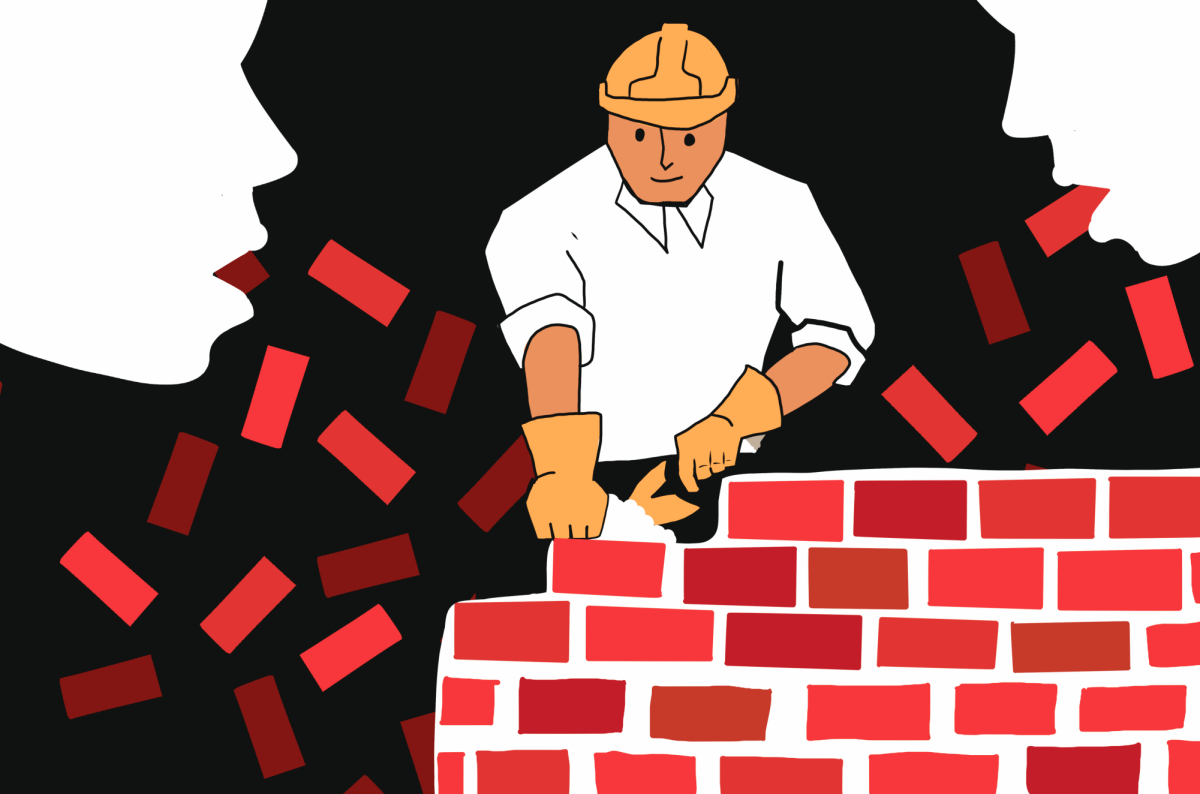We’ve all had that one essay or project that we’ve lost sleep over. That assignment that we were either really passionate about or really wanted a specific grade on. We poured ourselves into it, worked as hard as possible and felt proud when it was turned in — only to be told it wasn’t as good as we thought.
Doubt floods our minds when we receive criticism. Thoughts of our inabilities and weaknesses begin to take over, and at times we can feel like failures. It can feel so frustrating to get negative feedback on our work, especially when we feel so confident and have put so much effort into it.
Learning how to not only deal with criticism but also grow from it can be one of the most valuable and difficult skills to learn. If we begin growing comfortable with criticism as college students, we’ll provide ourselves with a higher potential for success.
As a dancer, I recently received much harsher feedback than I’m used to. My face turned bright red as I was simultaneously embarrassed, irritated and trying not to cry. In a practice where my work is so physically tied to my body, I took it really personally. I left that evening feeling like I was a horrible dancer and as though I was utterly incapable of doing anything right.
In retrospect, none of those things are true. With a clearer mind, I can see how the feedback itself was meant to be helpful, not hurtful, but I let it get to me because I was looking at my work from a personal perspective rather than an objective one.
In the weeks since, I’ve marinated on that feedback and noticed why it was given. Without that initial experience, I might not have taken the time to reflect on my work and improve it so drastically.
It’s hard, but putting our egos aside and looking at our work through an objective lens can help us to grow faster. We should acknowledge when criticism frustrates us, but we’ll never be the best versions of ourselves if we choose not to utilize it.
“I think the whole point of feedback … it’s to improve the product,” psychology professor Jessica Church-Lang said. “It’s to try and make the idea, the writing or the creation as good as it can be, and it really isn’t personal.”
It might also help to know that, as students, we’re not the only individuals who frequently receive negative feedback. Scholastic individuals, like professors, receive criticism all the time.
Whether it’s writing a book, doing research or trying to publish an article, outside of class, our professors have their own personal projects. These can take years to accomplish, and they often go through rigorous peer reviews.
“I feel (like) reviewers, they step on my heart,” psychology professor Robbe Goris said. “The natural tendency is to want to go against that (criticism) and want to argue with it, (but) that’s not helpful. It’s much more helpful to accept that something is clearly not working, that something is not good enough about the thing that you did, or that something needs to be improved.”
Spending years on research only to be told it’s not good enough for publication can be heartbreaking. However, if you give up immediately, you’ll never see how that initial product has the potential to morph into something brilliant.
It’s just as important that we not allow the opinions of other people to affect our confidence. We are no less capable than we thought we were, and, through these difficult experiences, we are given the opportunity to improve.
“(The key to retaining confidence) is truly believing that what you’re trying to do is something really, really difficult,” Goris said. “When you believe that, then the criticism, you can understand it more as ‘maybe I’ve chosen a problem to work on that is just really hard to answer,’ (as opposed to) ‘I must be an incompetent scientist.’”
When receiving feedback, we have the ability to listen and decide how what is being said can help us in the future. It’s hard to set our egos aside, but if we can, the limit to what we can accomplish will only continue to grow alongside our capacity for success.
Lack is a dance and Plan II sophomore from San Angelo, Texas.














